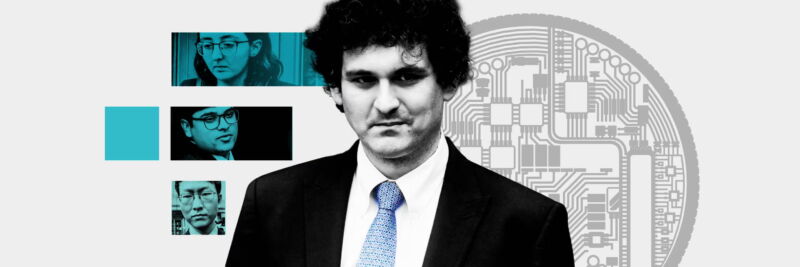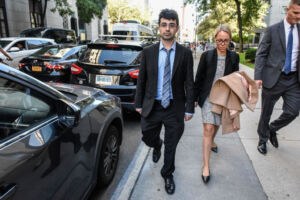
Early last summer, Adam Yedidia took Sam Bankman-Fried to one side after a game of paddle tennis. In the shadow of a hut in the grounds of the Bahamian penthouse they and others shared, he asked the crypto tycoon: “Are we OK?”
Yedidia told a New York court this month that he was worried FTX, the crypto exchange that Bankman-Fried had co-founded and at that time led, was in financial trouble. He recounted his old friend’s reply: “We were bulletproof last year, but we’re not bulletproof this year.”
FTX collapsed a few months later, sending shockwaves through the cryptocurrency industry. US prosecutors hope this chat, which they have taken to calling the “bulletproof conversation,” will help to show Bankman-Fried knew about, and concealed, an $8 billion cash shortfall for months at least before it was exposed.
Until November last year, FTX appeared to be one of the most successful fintech companies in history. The crypto exchange, where customers could trade various cryptocurrencies, was valued at $40 billion after just three years in existence, making its 30-year-old co-founder and chief executive a billionaire.

Bankman-Fried oversaw both the exchange and Alameda Research, a private trading firm, with a tiny group of close associates in their late 20s and early 30s. Most of them lived together in the $30 million Bahamas penthouse, with an orchid-shaped pool on its terrace and sweeping ocean views.
This penthouse clique has had a strange reunion in court over the past three weeks. Most of them have not been in the same room since the chaotic events of last autumn, when a leak of financial data caused a stampede to withdraw money from FTX. But there was insufficient money to meet the requests—only an $8 billion hole where customer deposits should have been.
US prosecutors allege the shortfall arose because FTX had transferred or lent billions of dollars of its customers’ money to Alameda, which spent it on crypto investments, venture capital, political donations, celebrity marketing, and real estate. They claim Bankman-Fried defrauded his lenders, investors, and customers.
Bankman-Fried acknowledges that money flowed from FTX to Alameda, but has pleaded not guilty to fraud, claiming the disaster was a result of poor bookkeeping and risk management that left FTX dangerously exposed to a crypto market crash.

The former crypto kingpin, his trademark curly hair shorn by a fellow inmate at a New York jail, has spent the first 12 days of the trial sitting hunched and impassive at the defense table as his longtime friends took the stand against him.
Caroline Ellison, Bankman-Fried’s former girlfriend and Alameda’s former chief executive officer, along with FTX co-founder Gary Wang and director of engineering Nishad Singh have all pleaded guilty to fraud and other offenses.
Bankman-Fried faces life in prison if he is convicted. But the trial has wider significance for the largely unregulated world of cryptoasset trading. It represents a crucial test for efforts by US law enforcement to exert their authority over trading businesses domiciled offshore. Damian Williams, the US attorney for New York’s Southern District, has sat in court several times to watch his deputies carry out the high-stakes prosecution.
Hilary Allen, a professor of law at the American University, says that while the industry has often “weaponized technobabble” to claim it falls outside national regulation, this case is intended to show that there “actually is someone you can hold accountable.”
The trial will resume on October 26 after a weeklong intermission. Legal observers increasingly expect Bankman-Fried himself to take the stand. The question is whether crypto’s most captivating advocate can possibly explain away the evidence and the damning testimony of his oldest friends.
reader comments
139